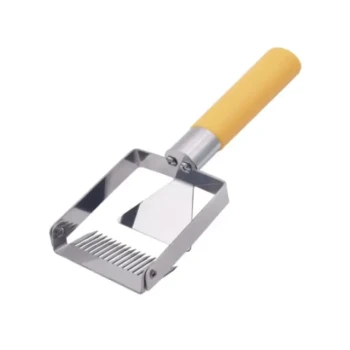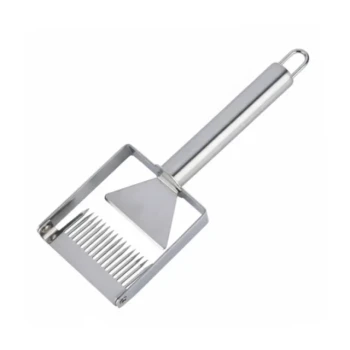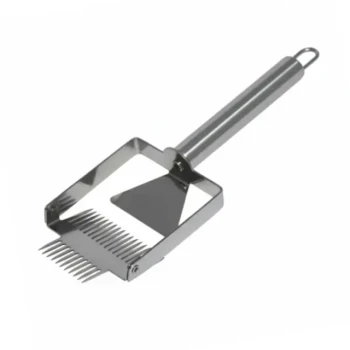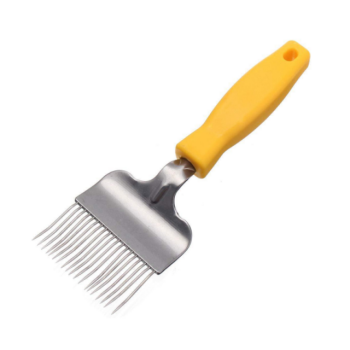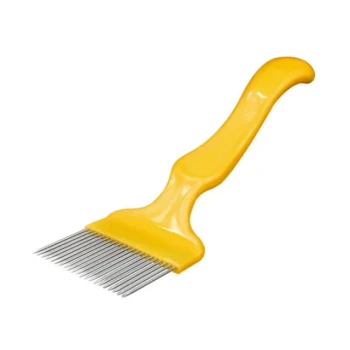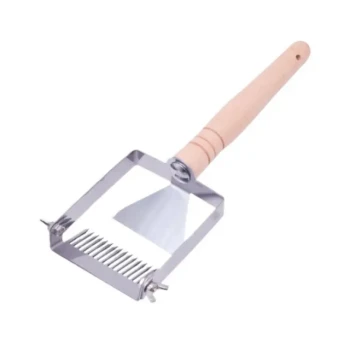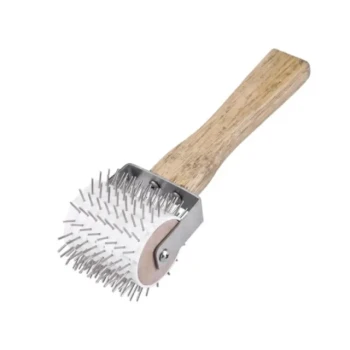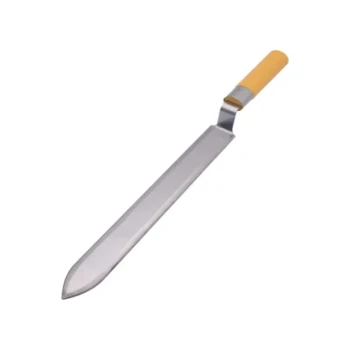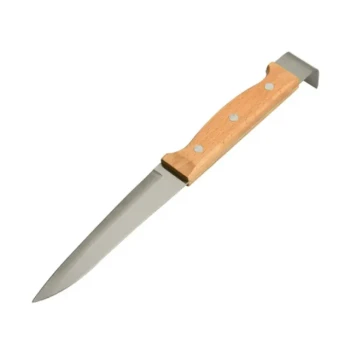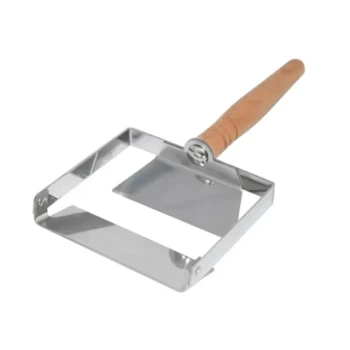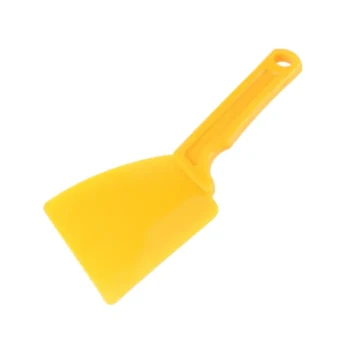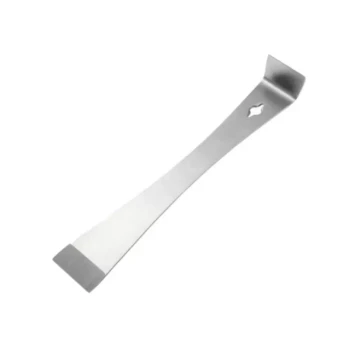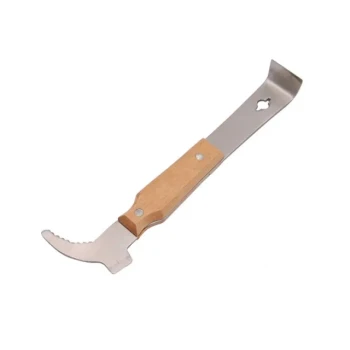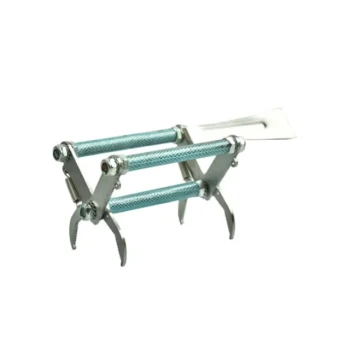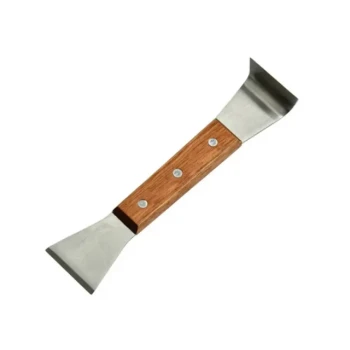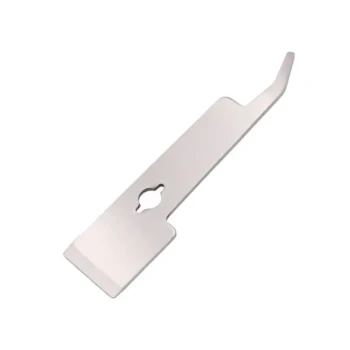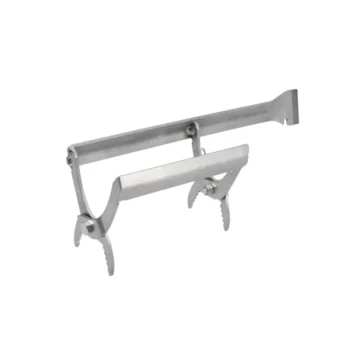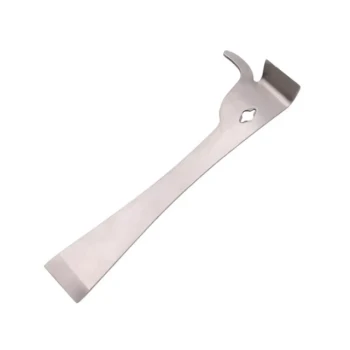In the context of honey harvesting, an uncapping fork serves a single, crucial purpose: it is a manual tool used to pierce and remove the beeswax cappings that seal honey inside the cells of a honeycomb. This initial step is non-negotiable for any beekeeper who wishes to extract liquid honey from their frames.
While several tools can uncap honey, the uncapping fork stands out as the most precise, budget-friendly option. Its design makes it uniquely suited for handling uneven combs and small-scale harvests where meticulous work is valued over raw speed.
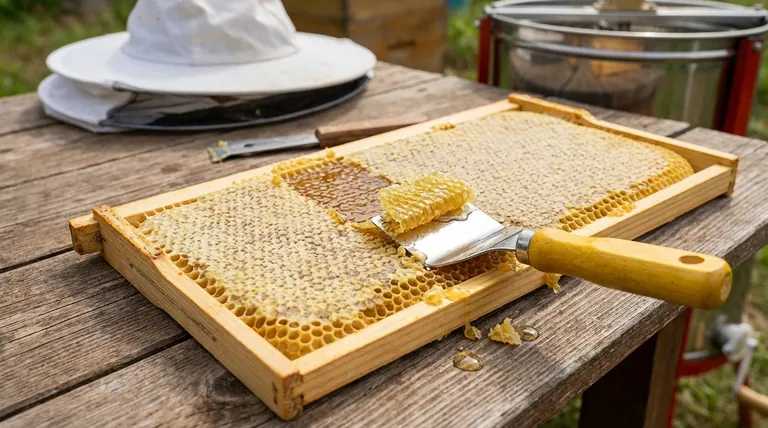
Why Uncapping is a Critical Step
Before honey can be harvested, it must be freed from its natural, protective seal. The uncapping process is what makes honey extraction possible.
The Purpose of Beeswax Cappings
Bees fill honeycomb cells with nectar and dehydrate it to create honey. Once the honey reaches the correct moisture content (around 18%), they seal the cell with a fresh layer of beeswax, known as a capping.
This capping protects the honey from moisture and contaminants, preserving it indefinitely for the colony's use.
Preparing Frames for Extraction
To get the honey out, a beekeeper must first break this wax seal. Simply placing a capped frame into a honey extractor would do nothing, as the centrifugal force cannot pull the honey through the solid wax barrier.
The uncapping fork is one of the primary tools designed specifically to remove these cappings efficiently.
How to Use an Uncapping Fork
The fork's effectiveness comes from its simple design—a handle attached to a set of sharp, stainless steel tines.
The "Sliding and Lifting" Motion
The correct technique involves sliding the tines of the fork just beneath the surface of the beeswax cappings. With a gentle prying or lifting motion, you can then peel back the layer of wax.
This action exposes the honey-filled cells beneath, preparing the frame for the extractor. The goal is to remove the wax with minimal damage to the underlying comb structure.
Ideal for Low Spots and Corners
Honey frames are rarely perfectly flat. A fork excels where electric knives often fail, allowing you to uncap low spots or recessed areas of the comb that a flat blade would miss.
Its tines can get into every corner and crevice, ensuring the maximum amount of honey is ready for extraction.
An Alternative Use: In-Hive Management
An uncapping fork also has a secondary, in-hive use. By lightly scratching the surface of capped honey frames left in the hive, you can signal to the bees that the seal is broken.
The bees will then often move that honey to a different location higher up in the hive, a useful technique for consolidating hive resources.
Understanding the Trade-offs
No single tool is perfect for every situation. The uncapping fork is a specialist tool with clear advantages and disadvantages.
The Advantage of Precision
The fork is less intrusive than an uncapping knife. It allows for cell-by-cell work, giving the beekeeper total control and preserving the underlying wax comb more effectively.
The Advantage of Cost and Simplicity
As a non-electric, manual tool, the uncapping fork is inexpensive, reliable, and easy to clean. It requires no power and has no moving parts to break, making it a staple for beginner and small-scale beekeepers.
The Limitation of Speed
The primary trade-off is speed. For a beekeeper with dozens or hundreds of frames to process, using only a fork would be extremely time-consuming. In large operations, it is often used as a secondary tool to clean up areas missed by a faster electric knife.
Making the Right Choice for Your Goal
Selecting the right uncapping tool depends entirely on the scale and style of your beekeeping operation.
- If your primary focus is a small-scale or hobbyist harvest: The uncapping fork is the perfect primary tool for its low cost, precision, and simplicity.
- If your primary focus is efficiency with many hives: An electric uncapping knife will be your primary tool for speed, but a fork remains essential for handling uneven frames and cleanup.
- If your primary focus is in-hive honey management: The fork's ability to scratch cappings makes it a useful tool for encouraging bees to relocate stores.
Ultimately, understanding the uncapping fork's role empowers you to harvest your honey with intention and care.
Summary Table:
| Feature | Description |
|---|---|
| Primary Use | Removes beeswax cappings to expose honey for extraction. |
| Key Advantage | Offers superior precision for uneven combs and small-scale harvests. |
| Ideal For | Hobbyist beekeepers, small-scale operations, and detailed cleanup work. |
| Best Technique | A sliding and lifting motion to pry wax with minimal comb damage. |
Ready to harvest your honey with precision?
For commercial apiaries and beekeeping equipment distributors, having the right tools is essential for efficiency and honey quality. HONESTBEE supplies durable, professional-grade uncapping forks and a full range of beekeeping supplies through our wholesale-focused operations.
Contact us today to discuss your equipment needs and discover how we can support your beekeeping success.
Visual Guide
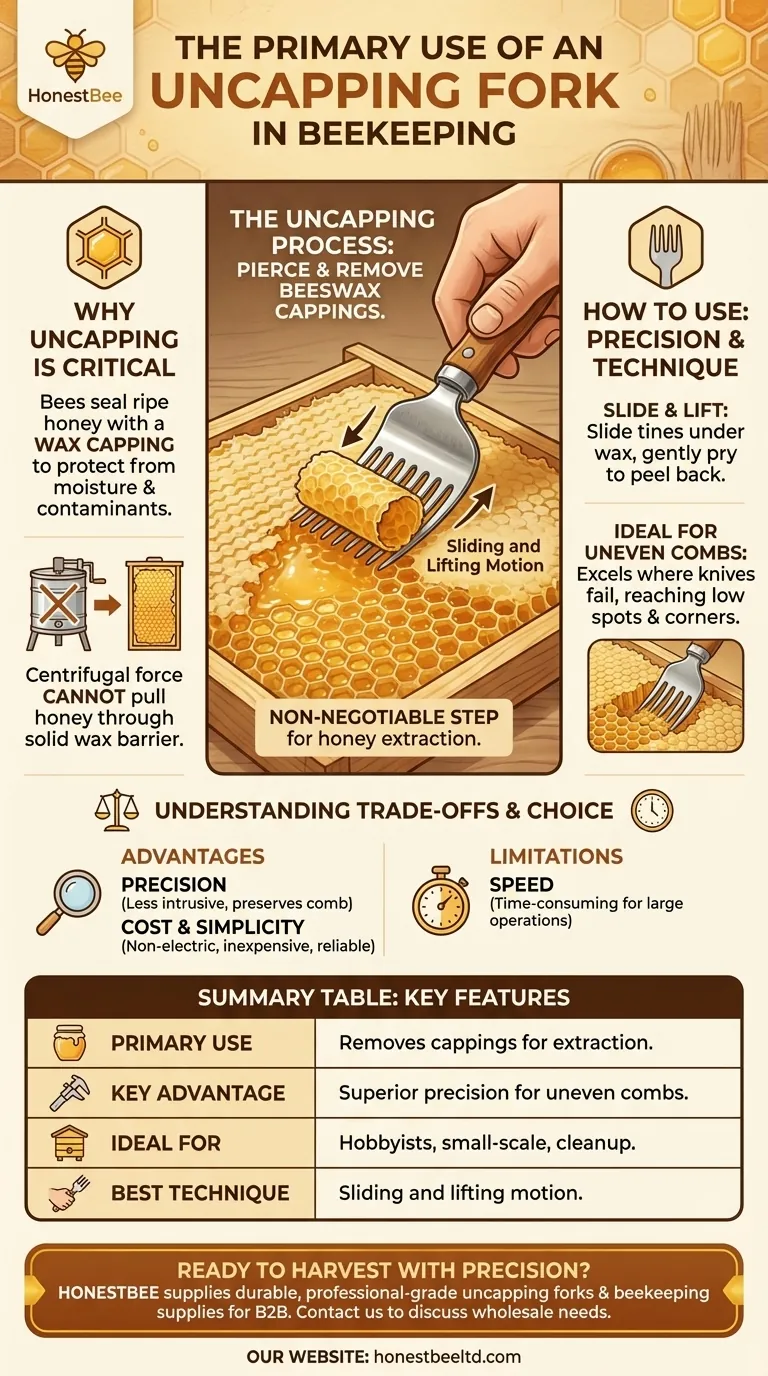
Related Products
- Stainless Steel Pivoting Honey Uncapping Fork with Plastic Handle
- All-Stainless Steel Pivoting Honey Uncapping Fork for Beekeeping
- All Stainless Steel Double Sided Pivoting Honey Uncapping Fork
- Professional Bent Tine Honey Uncapping Fork with Ergonomic Grip
- Professional Honey Uncapping Fork Tool with Customizable Tine Options
People Also Ask
- Why is the use of Uncapping Tools considered an essential step prior to the honey extraction process? Unlock Your Harvest
- What is the use of an uncapping fork? A Precision Tool for Hive Management and Honey Harvesting
- What to use to uncap honey? Choose the Right Tool for Your Apiary
- What is an uncapping knife and its function in honey harvesting? Essential Tips for Efficient Extractions
- What specific structure does a professional honey uncapping knife target? Maximize Your Mature Honey Yield
